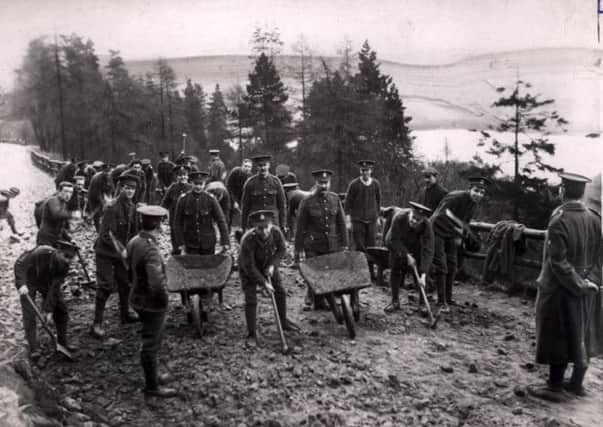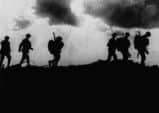Putting together the story of Sheffield medics in the Great War


All over the country plans are already afoot to commemorate what was supposed to be “the war to end all wars.” Everything from local plays and exhibitions, to grand state events are being staged to mark the anniversary of the start of the conflict.
The BBC alone has unveiled plans for a series of programmes and events that will span four years across TV, radio and online, echoing the time frame of the war itself. The season will include 130 newly commissioned programmes stretching across nearly 2,500 hours.
Advertisement
Hide AdAdvertisement
Hide AdThis is a huge commitment, even for such an historic event, but it is some of the smaller events and exhibitions that are sometimes the most interesting. Among them is Dr Derek Cullen’s ambitious attempt to piece together Sheffield’s medical effort during the war.


Dr Cullen, a retired consultant physician from the Royal Hallamshire Hospital, has teamed up with Sheffield University’s Medical School to host an exhibition about the role of doctors between 1914 and 1918, to mark the 100th anniversary.
He is appealing for people to share family stories, archives, real life accounts or pictures of ancestors for the exhibition, which is due to open in June.
More than 70,000 sick and wounded soldiers were brought back to Sheffield during the war and Dr Cullen wants to tell their story. “We have a huge amount of intriguing material which really paints a heart wrenching picture of the role of Sheffield doctors, nurses, orderlies, stretcher bearers and chaplains who all played an equally heroic role in the care of the wounded and dying,” he says.
Advertisement
Hide AdAdvertisement
Hide AdHe and a team of medical historians have already collated a wealth of material including old photographs and real life accounts ahead of the exhibition which will be housed at the University’s Medical School from next summer.
“We are particularly interested in those who served in the 3rd West Riding Field Ambulance in France and also the 3rd Northern General Hospital and the Wharncliffe War Hospital which were created for the wounded returning to the city of Sheffield,” says Dr Cullen.
“The exhibition will reveal a fascinating picture of surgeons rotating between service at the front line and civilian practice and conspicuous bravery of newly qualified doctors, one of whom, William Barnsley Allen, was awarded the Victoria Cross.
“It will also bring to life testimonials of medical students who gave up their studies to volunteer to care for the wounded at the front including our first female medical graduate, Lydia Henry, who worked with the Scottish Women’s Hospital in France and was awarded the Croix De Guerre.”
Advertisement
Hide AdAdvertisement
Hide AdThe exhibition is open to the public and will run for six months, accompanied by a book and a lecture series. He hopes, too, that it will show modern medical students how Sheffield medics responded to the war, which in turn led to advances in medicine that we benefit from today.
“We would like to record the service of these doctors and medical volunteers as fully as possible and I really hope people in the Sheffield, Yorkshire and Derbyshire area come forward and share their family archives, personal accounts and pictures of their ancestors.”
For more information, or to contribute something to the exhibition contact [email protected]